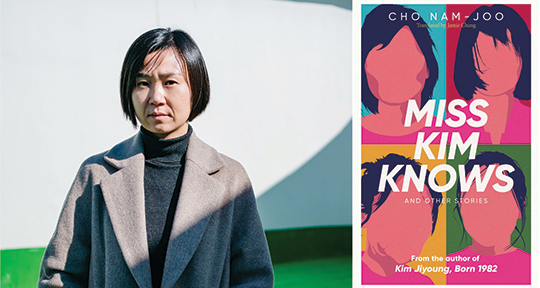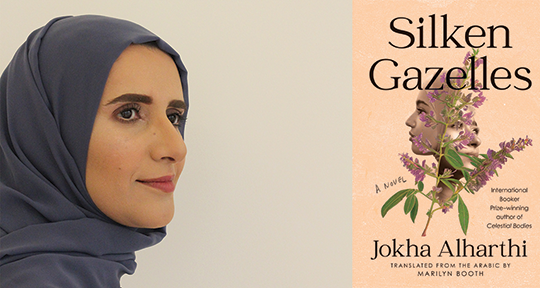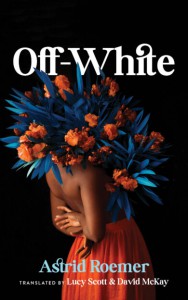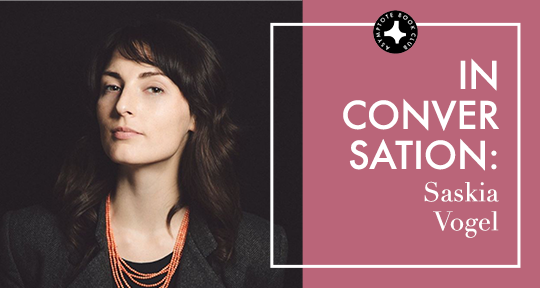Annie Ernaux’s memoir of her 1963 abortion, Happening, originally published in 2000, and Audrey Diwan’s 2021 movie adaptation of the same name are the subject of our latest edition of Asymptote at the Movies. Ernaux’s memoir tells the story of an abortion she sought before the procedure was legal in France, and the story of her reflecting on the experience decades later, well after France legalized abortion. Diwan’s movie came out in a very different world than the one Ernaux’s memoir reflects on and, indeed, the one in which Ernaux wrote her memoir. Both the book and the movie follow young Annie’s struggle to find the medical care she needs—Ernaux said that watching the film “plunged” her back into the experience she wrote about. Taking the two together underscores the urgency of her situation and raises questions about the difference between cinematic immediacy and memoiristic distance. In the following roundtable, Meghan Racklin, Xiao Yue Shan, and Georgina Fooks discuss the relationship between these two works, the translation of memoir into fiction, and experience of reading and watching the movement of time.
Xiao Yue Shan (XYS): Halfway through the pages of Ernaux’s Happening, there’s a line that I saw as a kind of summation of her entire corpus’ ethos: “I believe that any experience, whatever its nature, has the inalienable right to be chronicled.” It seems to me that a similar sentiment across nearly all of her texts—which are, after all, in their obsessive tunnelling and metaphysical depth, a refusal of any verdict that women’s lives are mundane, and their thoughts unserious.
And there is a particular impact to that Serious Verb—chronicled. In French, Ernaux opts for the less indomitable l’écrire, but I’d like to believe that Tanya Leslie, in her translation, understood that to write would have been too pliant for what Ernaux wanted to say: that such experiences needed to be inscribed into the archives of human history, that they needed to be preserved as well as they can for future excavation, and that such texts would fill the void in the scaffolding of time.
Happening, then, is a text about writing, but also the remembering that feeds the writing, and also the rupture that must be navigated when reality and recognition are trying to find one another on the page. If there was any image that came to mind while I read Happening, it was only of the older Ernaux holding a pen, gazing out the window, closing her eyes in conjuration of an image. Because Happening does not centralise the abortion that propels its narrative, but the intellectual clarity that is required to unveil “what can be found there,” I almost expected a cinematic replication of that once-removed perspective in Audrey Diwan’s adaptation: voiceover narration, analepsis/prolepsis, superimpositions . . .
The film, however, makes no use of such manipulations, and completely isolates itself within the parameters of the Event; it is a movie about abortion, and its illegality and ramifications in 1960s France. It is so dissonant from its source text—not in content but in intention—that it jarred me when Anamaria Varolomei, who plays Ernaux, is first addressed as Annie. It was impossible for me to connect her with the woman of the book—not only because the woman is older, but because the woman is remembering, not living through. The film is an intimate, occasionally chilling, and politically effective film about the alienation and humiliation of being accidentally pregnant in that era—and as such it is rooted in the immediate, in the physical, and in the cinematic present. Ernaux’s text read to me in direct opposition, weaving and defining that tenuous space of the eternal past. How did the two of you feel about this variation in treatment? Was it as disconcerting for you?
READ MORE…












Announcing Our September Book Club Selection: A Long Walk From Gaza by Asmaa Alatawna
Alatawan’s novel is both personal and political; at its heart, it’s a story about freedom.
In Asmaa Alatawna’s mesmerizing and clear-sighted debut novel, A Long Walk from Gaza, the long journey of migration is revealed as a dense mosaic of innumerable moments—a gathering of the many steps one takes in growing up, in fighting back, and in learning the truths about one’s own life. From the Israeli occupation to the daily violences of womanhood, Alatawna’s story links our contemporary conflicts to the perpetual challenges of human society, tracking a mind as it steels itself against judgment and oppression, walking itself towards selfhood’s independent definitions. We are proud to present this title as our Book Club selection for the month of September; as Palestine remains under assault, A Long Walk from Gaza stands as a powerful narrative that resists the dehumanizing rhetoric of war.
The Asymptote Book Club aspires to bring the best in translated fiction every month to readers around the world. You can sign up to receive next month’s selection on our website for as little as USD20 per book; once you’re a member, join our Facebook group for exclusive book club discussions and receive invitations to our members-only Zoom interviews with the author or the translator of each title.
A Long Walk From Gaza by Asmaa Alatawna, translated from the Arabic by Caline Nasrallah and Michelle Hartman, Interlink Publishing, 2024
There are some books that grab you from the very first line and hold your attention tight, right through every single word to the end; even once you’ve finished reading them, they keep delivering with their exquisite phrasings and stunning imagery, their deft, original storytelling. Asmaa Alatawna’s A Long Walk from Gaza, co-translated by Caline Nasrallah and Michelle Hartman, is one such novel. Through her enthralling and thoughtful prose, Alatawna unfolds idea after idea, fact after fact, emotion after emotion, recounting a tumultuous upbringing and journey that moves with both personal and universal resonance.
A Long Walk from Gaza is Alatawna’s debut in both Arabic and English—a semi-fictionalized, coming-of-age novel. Originally published in 2019 as Sura Mafquda, it explores the struggles of a teenage Gazan girl as she rebels against her surroundings, both at home and at school, and her heartbreak as she leaves Gaza for a new life in Europe. Her escape doesn’t resolve her problems but instead introduces new challenges, revealing the persistent, ongoing internal conflict of exile. While portraying life and a childhood under Israeli occupation and oppression, Alatawna also takes an incisive, knowing look at the patriarchal system of her own people. READ MORE…
Contributor:- Ibrahim Fawzy
; Language: - Arabic
; Place: - Palestine
; Writer: - Asmaa Alatawna
; Tags: - autobiographical novel
, - exile
, - feminism
, - Interlink Publishing
, - liberation
, - migration
, - occupation
, - Palestinian literature
, - social commentary
, - War
, - Women Writers